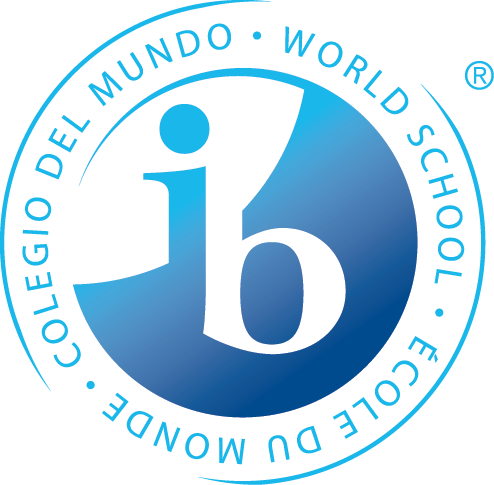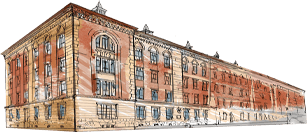World Heritage and Youth-
Project Education in the field of world heritage protection (WHE – World Heritage Education), which aim is to interest young people in the issues of protecting the world’s cultural and natural heritage, it was proposed to UNESCO Associated Schools in 1994. Introducing world heritage issues into school curricula has contributed to establishing cooperation between teachers and students and scientists and experts not only on a national scale, but also on a global scale. The WHE program leads to the development of creative attitudes of teachers and students, awakens the awareness of the importance of creative heritage. It is coordinated by the UNESCO World Heritage Center (UNESCO World Heritage Center) and the UNESCO Associated Schools Department (Associated Schools Project).
Baltic Sea Program –
The international, ecological educational program for schools in the Baltic Sea region was initiated in 1989 as one of the priority programs for students of UNESCO Associated Schools. Its aim is to mobilize students from schools in the Baltic Sea region to take action to protect water resources and the human environment. The program is designed not only to make students aware of the dangers of human impact on the natural environment, but also to help them understand the scientific, social and cultural aspects of the relationship between man and nature. Moreover, it contributes to the constant exchange of information on teaching methods between teachers from schools in the Baltic Sea region. The project includes: Finland, Sweden, Denmark, Germany, Poland, Lithuania, Latvia, Estonia and Russia.
Youth and teachers of schools implementing the project take part in workshops, conferences, and summer camps that enable constant cooperation and exchange of experiences, while contributing to the development of the program. Main projects implemented by schools participating in the program Baltic Sea Project These are: Water Quality, Air Quality, Rivers, Bird Ecology, Observations of the Baltic Coast, Environmental History.
Global Week of Action for Education –
In 2000. was held in Dakar World Education Forum,attended by ministers of education, experts, scientists and representatives of associations and non-governmental organizations representing over one hundred countries around the world. The aim of the meeting was to summarize the effects of ten years of the main UNESCO program – Education for everyone. One of the associations that took part in the preparations and participated in the deliberations of the World Forum in Dakar is Global Campaign for Education (GCE). This association, established in 1999, brings together thousands of people and many organizations, including teachers’ unions, from over 100 countries. The aim of the Global Campaign for Education is to mobilize societies and to put pressure on decision-makers on whom the implementation of universal access to education depends and to achieve by 2015 the rest Education for All goals..
Global Campaign for Education is the coordinator World Education Action Weeks, organized annually in April. The aim of this undertaking is to involve as many people, organizations and associations as possible in actions reminding decision-makers about the commitments made in Dakar. UNESCO Associated Schools are also invited to take initiatives to ensure universal education. To fully participate in the activities proposed by Global Campaign for Education, you must visit the association’s portal, read the information materials, download patterns of stickers, posters, etc. from the website, and complete the application form.
This is our time-
Project „This is our Time” (“To jest nasz czas”), initiated and developed in cooperation with the UNESCO Associated Schools program (UNESCO ASPnet), it is aimed at students aged 10-19. The first edition of the project was carried out on November 16, 1995, on the 50th anniversary of the United Nations and UNESCO.
The creator and organizer of the project ise-linQ, a design office dealing with the introduction and use of new information technologies in education, cooperating on the ‘This is our Time’ project with the UNESCO Associated Schools Section (UNESCO ASPnet), The Netherlands National Committee for UNESCO and the University of Vocational Training in Fontys.
“This is our time” is a 24-hour on-line conference. Initially, 40 schools participated in it, now, in 2010, over 300 schools, youth groups and UNESCO clubs joined the discussion on the network.
The project “This is our time” is an excellent tool enabling young people from all over the world to contact and exchange views on topics such as: sustainable development, children’s rights, peace, tolerance, etc. By participating in the project, students learn about the operation of the United Nations and its agencies, experience in practice what cooperation with colleagues from other cultures is, become aware of the principles of international cooperation, deepen their knowledge of human rights, sustainable development, etc. The project helps to acquire new skills, such as: communication in foreign languages, cooperation in a group, critical thinking, sharing ideas and ideas. Participation in the project also causes changes in attitudes – students become open to other cultures, lifestyles and ways of thinking, responsible for the world around them, begin to perceive the places where they live in a global context.
Water-
Applying sustainable methods of managing natural resources by taking into account the principles of sustainable development in national strategies and programs, using methods that inhibit the depletion of the natural environment. Halving the number of people without permanent access to clean drinking water is the seventh out of eight The Millennium Development Goals, that is the most urgent tasks for the international community, the implementation of which serves to build a global global partnership for development.
Water is a natural resource that cannot be replaced by any other. Water resources are limited and its quality determines our health and life. That is why the United Nations proclaimed 2005-2015 The International “Water for Life” Decade.
UNESCO Associated Schools often take action on global issues, while adhering to the “think globally – act locally” principle. One of the global problems is undoubtedly ensuring that all people have permanent access to clean drinking water.




